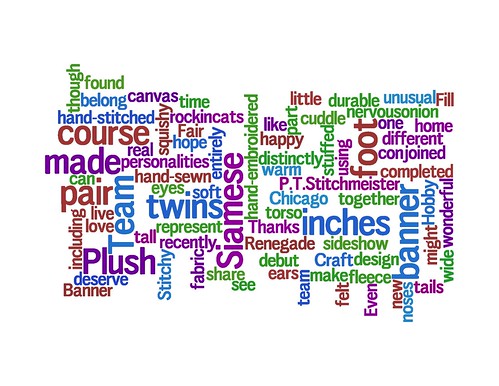Ever given someone a not-so-glowing review? Ever had that come back to you in equal, or even greater, measure? The indie author community is a close-knit bunch of folks that do a lot of interacting with each other...but artists do tend to be a little touchy. You too could be a victim of indie author retaliation.
Spite
I'm a big advocate for the indie author community as a whole.
Self-published authors need each other, and honestly if you're doing it right you're going to interact with them anyway. You'll bump into them in forum groups, on Twitter, and you'll find them commenting on your blog.
And you're not going to become BFF with every last one of them, because this is not summer camp. Even worse, if you start reading books by other indie authors (and chances are, you will) you're going to discover that some of them just don't suit your particular reading tastes. You're not going to enjoy every single self-published book you read. If you're honest about those feelings (and I believe you should always be honest), you may face retaliation.
One-star reviews may appear out of nowhere, comments that belittle you may suddenly crop up...you might even get a rage-filled email accusing you of pretty much everything except being a Republican. It's going to hurt your feelings, because that's the point. You hurt their feelings...by being honest. This doesn't make sense, I know. When you're a professional, you know that you aren't going to please all the readers all the time. You know that you may face comments and criticism that sting a little, and you know you've got to simply absorb that information, use it however you can, and write the next line. You'll get 'em next time.
But every
indie author you meet isn't going to have this attitude. Some indie authors think they are geniuses, their words so brilliant and perfect they can do absolutely no wrong.
You are wrong for not liking their work.
You are wrong for being critical (even if your mission was to review their work and therefore, to be critical). And by Jove,
you are now the one who's going to hurt.
This is the path to retaliation, and believe it or not it's pretty easy to walk. It beckons and it calls, and it traps many different indie authors and in some cases, their friends and supporters. You may not be attacked by the author in question, but by one of their network of fans/friends/whatever.
It may never happen, but if you dish out reviews then it's probably going to happen in some form or fashion. When feelings are hurt, people tend to lash out. And as a professional, you're just going to have to absorb it. Look at the bad reviews and the ugly comments, and feel sad about them. Cry if you like. And then shove it away from you...and write the next line.
As an author, that's just what you do. Don't ever retaliate against one of your fellow authors, or anyone really. Stay professional, stay cool, and they'll end up leaving you alone. If you react to their reaction, it could lead to a full-blown war...and who's got the time?























